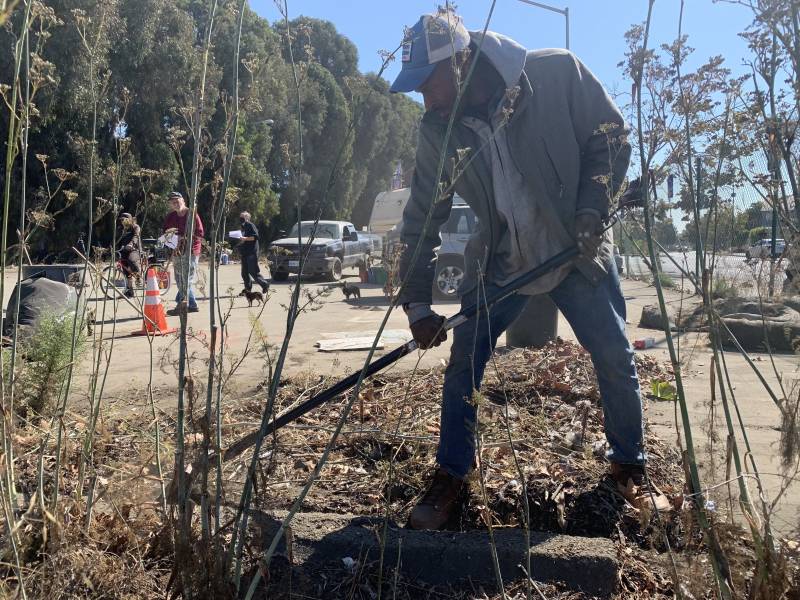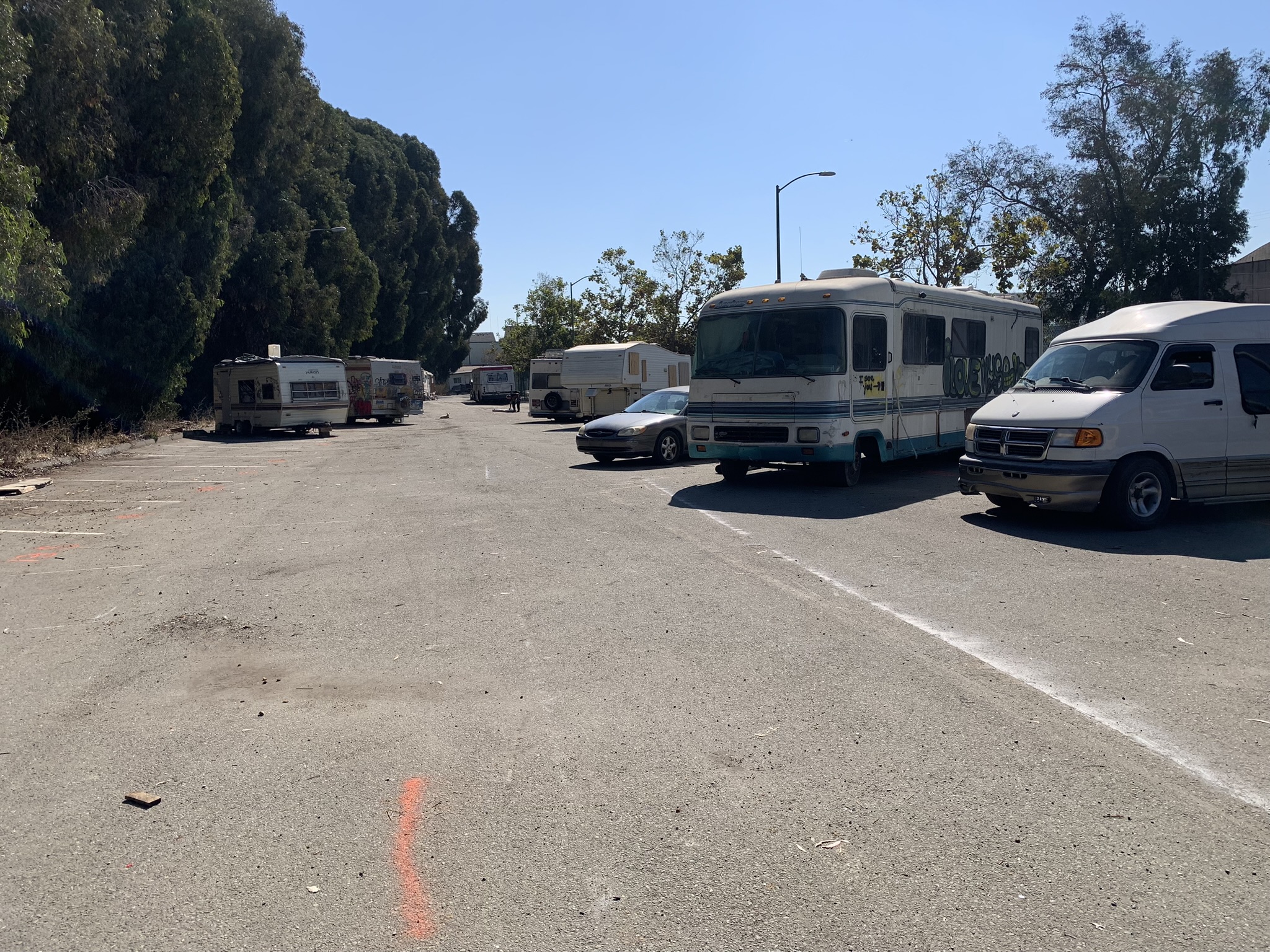Update, 5 p.m. Wednesday:
On Wednesday, California Highway Patrol officers escorted more than a dozen unhoused people off of a vacant Caltrans lot in West Oakland, just days after they had occupied it. Four activists trying to block officers from entering the lot were arrested and later released. Spokespeople for Caltrans and the city of Oakland said they are in talks about using other Caltrans properties as shelter sites, but did not provide specific details.
Original story, 11 a.m. Tuesday:
More than a dozen unhoused residents this weekend moved to a vacant lot in West Oakland following recent evictions from the Wood Street encampment — which was, until recently, the city’s largest.
The residents are hoping the city of Oakland will lease the lot — at 34th Street and Mandela Parkway — from Caltrans to relieve overcrowding on city streets, where residents have moved following the evictions. But it’s still unclear whether that will happen. On Monday, California Highway Patrol officers informed residents they would have one week to leave the site.
“They’re pushing us to nowhere,” said Wood Street resident LaMonte Ford from behind a chain-link fence protecting the site, which residents had locked to bar the officers from entering. “We have nowhere to go.”
At its height, the former Wood Street encampment stretched the length of more than 15 city blocks underneath the I-880 overpass in West Oakland, along the Union Pacific and BNSF Railway, on land owned by Caltrans, the city of Oakland, BNSF and private parties.
In early September, Caltrans began evicting the estimated 300 people who lived there. The move came after a nearly month-long delay, prompted by a lawsuit residents filed against the transportation agency.



